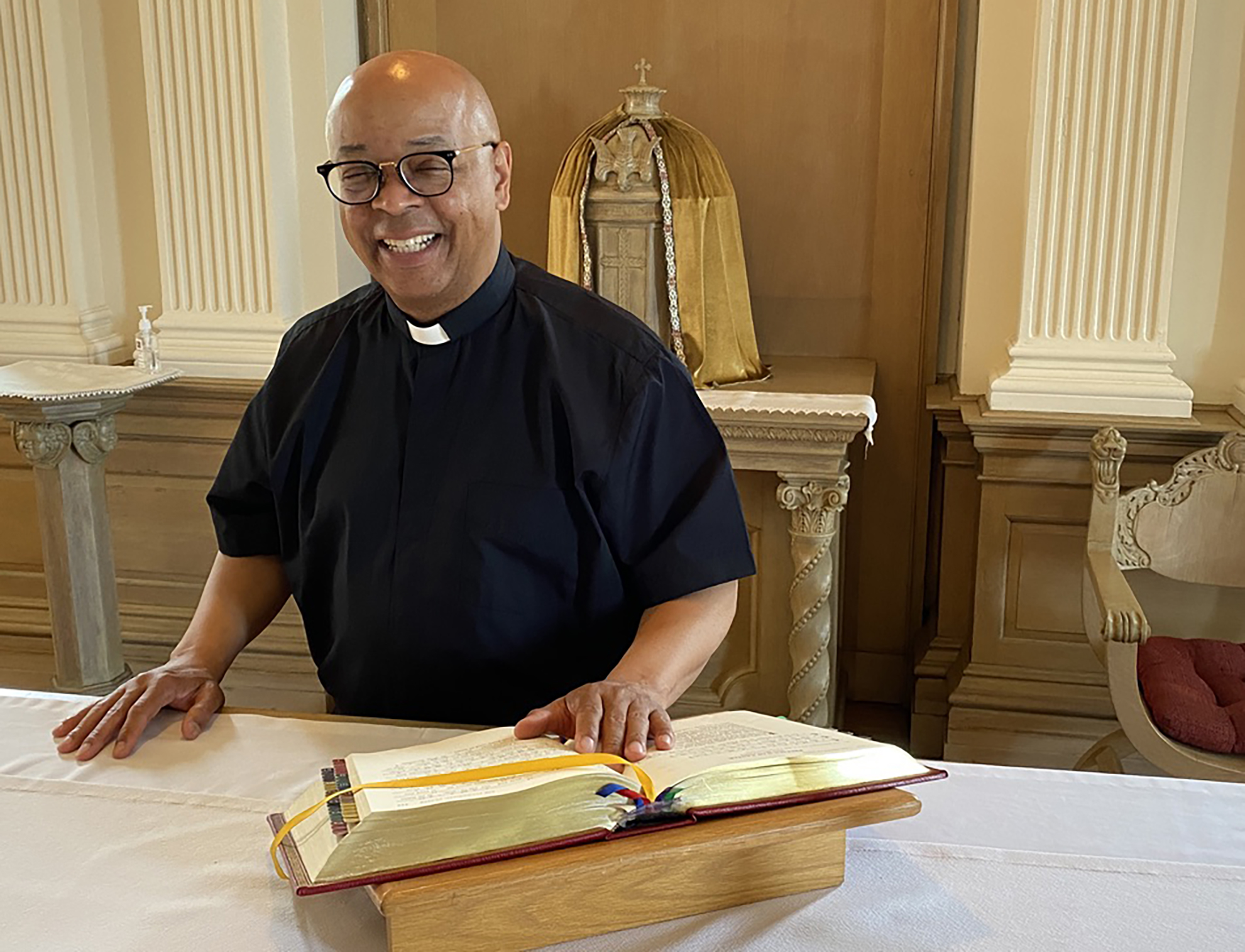
By Aiesha Wilson
Trinity Times Correspondent
When Father Stephen Thorne talks about his vocation as a priest and his role as an activist for social justice causes, he sees the two identities as one persona that has allowed him to carve out a distinctive mission on the campus of Trinity Washington University.
“I love teaching. I love being around young people,” said Father Thorne, a Religious Studies professor at Trinity, the university’s coordinator of Black Catholic Ministry, Culture, and Scholarship and the pastor of St. Barbara Catholic Church in the Archdiocese of Philadelphia. “But for me, being an activist and being a priest are very much connected. If I’m not connecting the altar to the street, I’m not doing my job.”
The ministry of Jesus Christ was a true example of activism for social justice, so the role of activist is a natural fit for a Catholic priest, he told Trinity Times.
Joining the staff of Trinity in 2022, the university community has embraced Father Thorne’s fusion of faith and activism with open arms.
Known for his thought-provoking courses like “African American Spirituality,” Father Thorne has empowered students to wrestle with tough conversations around race, gender, and systemic oppression.
“I always say to my students, especially my Black and brown women, ‘when you get that diploma, I want you to shout, scream and yell, because that’s your paper to go out and make a difference in the world,'” he said. “We’re meant to be servants. We’re meant to make someone else’s life better.”
Beyond the classroom, Father Thorne has mobilized Trinity students to act by leading them in assemblies against police brutality, advocating for increasing mental health treatment for prison inmates, being visible in the National Black Catholic Congress, showcasing Black Catholic History Month at Trinity each November, calling them to action for the Juneteenth holiday, sharing his passion for cultural diversity in the Catholic Church and in fellowship on Trinity’s Soul Food Thursdays.
“Sometimes the best lessons are not in the classroom, they’re learned on the street,” he said. “When we see something wrong in our country, especially here in D.C., we have a responsibility to speak up for justice.”
This unwavering commitment to social justice is what first drew Trinity President Patricia McGuire to recruit Father Thorne to the university.
“He embodies the mission of this university,” McGuire said, “to empower women, to elevate marginalized voices, and to be a force for positive change.”
Though Trinity was founded as a Catholic college in the 19th century, its religious focus isn’t as prominent in the 21st century, and most of the student body in 2024 isn’t Catholic.
However, Trinity’s Campus Ministry is still a vital element of the student experience at the university and its director, Notre Dame Sister Ann Howard, said Father Thorne’s presence has enhanced the schools religious and civic offerings.
“His contributions to Trinity include support for our African American students and faculty as an African American priest and representation of what being Christian means, as a pastor and as a man of God and God’s people,” Sister Ann told Trinity Times. “Father Thorne gifts us all at Trinity by the way he exhibits openness and inclusion in his teaching and his ministry.”
And Father Thorne’s impact extends far beyond the Trinity campus.
As the chair of the Archdiocese of Philadelphia’s Commission on Racial Healing, he has spearheaded critical dialogue on racism in the Catholic Church.
“Racism is alive and well, and we have to call it out,” he insisted. “We cannot call ourselves followers of Jesus Christ and be racist.”
Through his multi-faceted roles as priest, professor, and activist, Father Thorne’s tenure at the university continues to inspire the Trinity community to dream and do more.
“I’m blessed to be here,” he said. “This is sacred ground and I know I have a responsibility to my ancestors to be a person who not just talks about it, but also acts it out.”